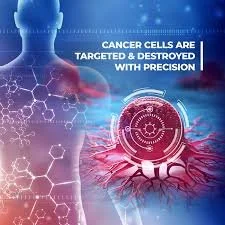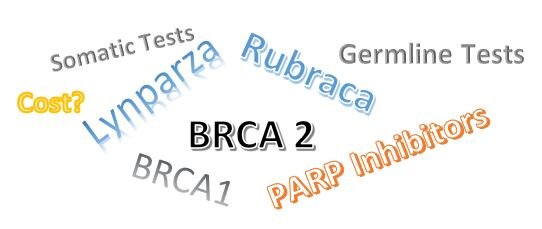Results from the PROCEED registry found that men with advanced prostate cancer with low PSA had a median survival of nearly 4 years after treatment with PROVENGE® (sipuleucel-T). A median survival means that one half of the men who participated in the registry lived longer than four years.
Reporting on Apalutamide (Erleada) for Castrate Sensitive Prostate Cancer
The use of apalutamide (Erleada) improved radiographic progression-free survival with a 52% reduction in risk of death or radiographic progression; that benefit was observed across all subgroups analyzed in the TITAN TRIAL for men with progressing prostate cancer that is still hormone sensitive. The median radiographic progression-free survival was not reached in the apalutamide group and was 22.1 months in the placebo group.
ARAMIS: Efficacy and Safety of Darolutamide in Nonmetastatic Castration-Resistant Prostate Cancer
At the recent ASCO GU conference, we learned the results from the ARAMUS phase III trial which evaluated Darolutamide, an androgen receptor (AR) antagonist (a drug that prevents androgens from affecting prostate and prostate cancer cells). The trial studied the efficacy and safety of darolutamide in men with nmCRPC men.
RADAR Trial Shows Longer ADT with Radiotherapy is Superior to Short-Term ADT and Radiotherapy
The 10-year outcomes from the RADAR phase 3 trial were recently published. The results showed that men with locally advanced prostate cancer who were treated with six months of androgen suppression therapy (ADT) and prostatic radiotherapy did not do as well as those who were treated with 18 months of ADT and radiation.
Time to PSA Recurrence Is A Surrogate Endpoint for Prostate Cancer Survival
In an analysis of the NRG Oncology clinical trial NRG-RTOG 9202 it was shown that the interval of time to biochemical reoccurrence (PSA only or BCR), or the time it takes for previously treated prostate cancer to return as indicated by a prostate-specific antigen (PSA) rise, could be used as a surrogate endpoint for survival for men with locally advanced prostate cancer.
Treating Gleason 9–10 Prostate Cancer
According to Anthony V. D’Amico, MD, Ph.D., who is chief of the Division of Genitourinary Radiation Oncology and an institute physician at Dana-Farber Cancer Institute at Brigham and Women’s Hospital in Boston, “It makes logical sense that in these very aggressive prostate cancers, you need a multi-modality approach.”
PSA Doubling Time And Proximal PSA Predict Metastasis-Free Survival In Men With Biochemically Recurrent Prostate Cancer After A Radical Prostatectomy
Two New Clinical Trial End Points For Death and Survival
Two Studies Released At ASCO Demonstrate A Survival Advantage For Men Who Take Early Zytiga With ADT
Two game changing trials demonstrated that the early use of Zytiga along with hormone therapy (ADT) can provide a significant survival advantage for men with aggressive, hormone naive prostate cancer. The data is very clear for men with metastatic disease, but there remains some controversy if this holds up for men who are not metastatic.






